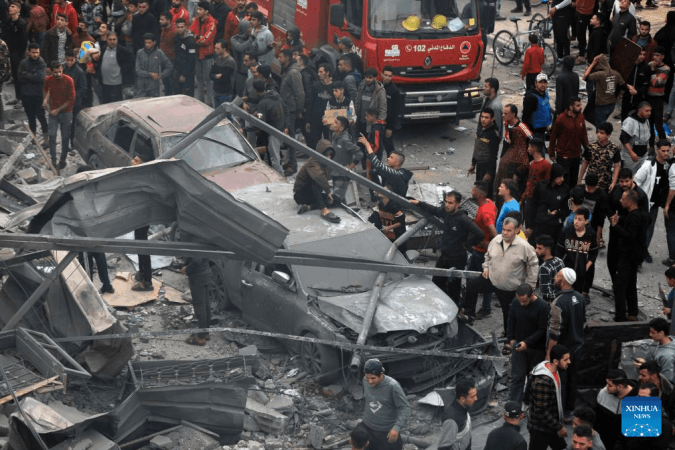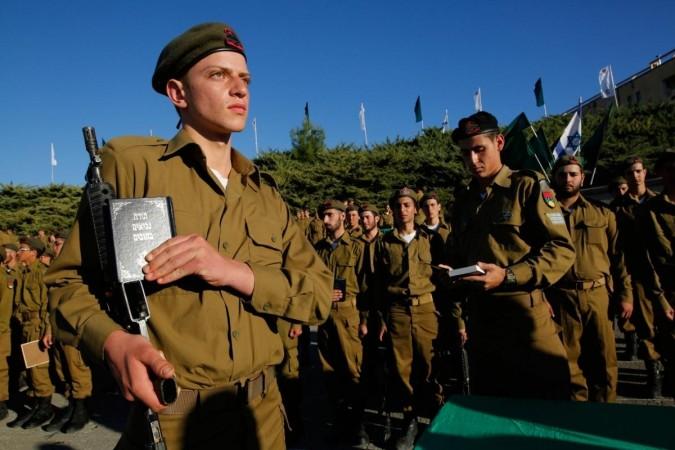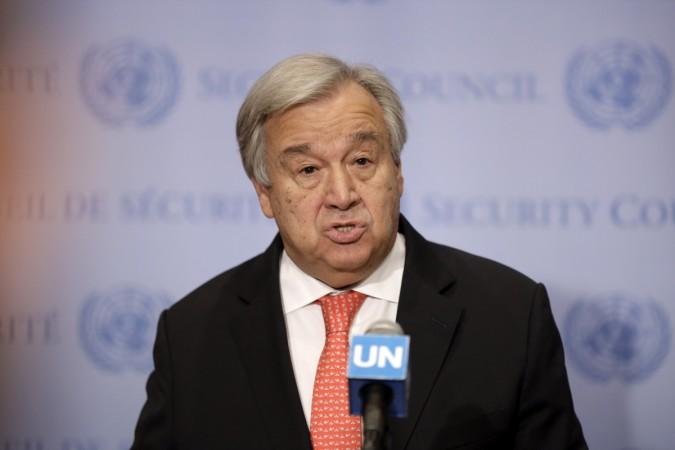
In a move rejected by Israeli officials, the UN's top court on Friday ordered Israel to "immediately" halt its military assault on the southern Gaza city of Rafah, saying the humanitarian situation in the Palestinian territory was "disastrous".
The ruling read aloud by Judge Nawaf Salam at the International Court of Justice (ICJ) in The Hague was in response to an urgent application submitted by South Africa. South Africa justified its application to the ICJ by arguing that the court's previous measures in connection with the Gaza war were inadequate. Israel rejected Friday's ruling.
"The charges of genocide brought by South Africa against Israel at the International Court of Justice in the Hague are false, outrageous and morally repugnant," the head of the National Security Council and the spokesperson for the Ministry of Foreign Affairs said in a joint statement. "Following the horrific attack against the citizens of Israel on October 7, 2023, Israel embarked upon a defensive and just war to eliminate Hamas and to secure the release of our hostages," the statement continued.
"Israel is acting based on its right to defend its territory and its citizens, consistent with its moral values and in compliance with international law, including international humanitarian law." "Israel has not and will not conduct military actions in the Rafah area which may inflict on the Palestinian civilian population in Gaza conditions of life that could bring about its physical destruction in whole or in part."
The statement vowed that Israel "will continue its efforts to enable humanitarian assistance and will act, in full compliance with the law, to reduce as much as possible harm caused to the civilian population in Gaza." Prime Minister Benjamin Netanyahu was discussing the decision with key Cabinet ministers, according to Israeli media reports.
South Africa has previously demanded measures against Israel several times in summary proceedings. This is part of the genocide lawsuit that the country filed with the court in December. In two emergency rulings, the UN judges had obliged Israel to do everything possible to prevent genocide and to allow humanitarian aid.

The Palestinian Islamist Hamas movement welcomed the ruling. In a statement published on Friday, Hamas called on the international community and the United Nations to exert pressure on Israel. A member of the Hamas politburo emphasized that without international pressure, the court's decision would have no effect.
Egypt and Jordan also welcomed the ICJ's ruling and urged the UN Security Council to put pressure on Israel to end its operation. The Palestinian Authority called for increased international pressure on Israel following the ICJ decision. The international community should force Israel to implement the decision, it said in a statement published in Ramallah on Friday.
The authority believes that the court's decision confirms the view that Israel is committing war crimes. South Africa on Friday also welcomed the ICJ's decision. The ruling African National Congress (ANC) called the decision a confirmation of the principles of justice, human rights and the rule of law.
However, in an echo of the words of former South African leader Nelson Mandela, President Cyril Ramaphosa said, "We will not be completely free until the people of Palestine are free." With its decision, the highest court of the United Nations partially complied with demands made by South Africa in an urgent appeal.

UN Secretary-General António Guterres said decisions of the ICJ were "binding" and he "trusts that the parties will duly comply with the order from the court," his spokesman Stéphane Dujarric said. "In accordance with the Statute of the Court, the Secretary-General will also promptly transmit the notice of the provisional measures ordered by the court to the Security Council," he said.
While the top UN court's rulings are binding, it has no means of forcing compliance. It can, however, call on the UN Security Council to act. US Secretary of State Antony Blinken spoke with Benny Gantz, a member of Israel's war cabinet, on Friday, US Department of State spokesman Matthew Miller said.
"Secretary Blinken and Minister Gantz discussed the latest efforts to achieve a ceasefire as part of a deal to release hostages and to prevent the conflict from expanding across the region," Miller said. Blinken reiterated that talks between Israel and Egypt must be concluded in order to reopen the Rafah border crossing as soon as possible, Miller said. He also stressed the "urgent need" to protect civilians and humanitarian workers in Gaza and to de-escalate the situation in the West Bank.
Hamas gunmen killed some 1,200 people in Israel on October 7. Israel responded with a devastating aerial and ground campaign that, according to Hamas-run health authorities, has killed more than 35,000 people in the territory. Israel has vowed to keep up its military operations until Hamas has been completely eliminated in Gaza.
(With inputs from IANS)

















